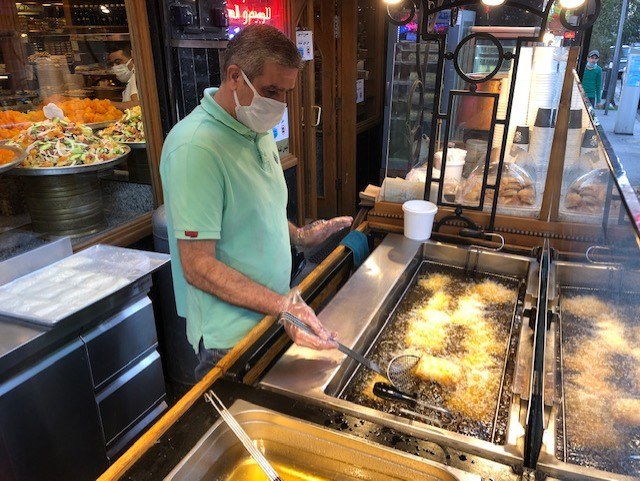
By Kareem Chehayeb — middleeasteye.net — Ever since the Lebanese government appointed him as the army’s commander in March 2017, General Joseph Aoun has seldom commented on the country’s current affairs. But four years later, his voice has been getting louder. Speaking in a dimly lit auditorium last month, Aoun scolded the Lebanese government for cutting the army’s budget in a scathing speech. “Do they want the army or not? Do you want the army to stand on its own two feet or not?” said Aoun angrily, denouncing allegations from unnamed political officials that the military has wasted resources. “We reject anyone who places their hands on the rights of the soldiers.” There have been repeated waves of protests against the Lebanese political system over the past two years over its failure to control inflation and provide fundamental services to the population.
The local currency, the Lebanese lira, has been plummeting since late 2019. Once pegged at 1,500 to the dollar, it has since lost more than 80 percent of its value. Meanwhile, food prices are skyrocketing – by over 400 percent so far, faster than anywhere else on the planet. Lebanese soldiers, once working a rare job in the country that guarantees a semblance of economic security, now earn monthly salaries worth less than $120. That is roughly 25 percent of the cash-strapped country’s minimum wage. Uniform belts are tightening. In June, the army stopped serving meat to its staff. And in February, France delivered $60,000 of food aid to the military, which appears to contain only the basics: cooking oil, carbs and canned food. With the army feeling the effects of Lebanon’s economic crisis much like the rest of the country, the rancour in Aoun’s big statement was clear. The army is a victim of political slander campaigns, he claimed, aimed at destabilising the military and national security. “But to whose benefit?” he asked. “Breaking up the army means the end of the [Lebanese] entity.”









